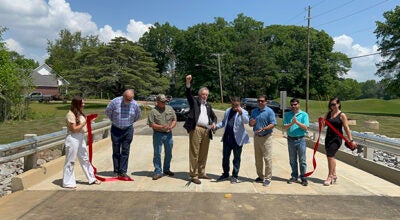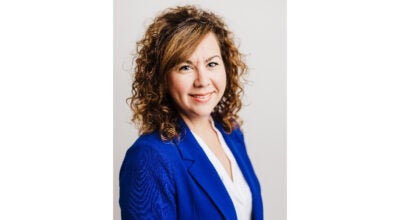Graduation rates up at area schools
Published 8:26 pm Wednesday, January 23, 2019
Local school districts are graduating a larger percentage of students compared with previous years, with the Mississippi School of the Arts and Lawrence County High School posting the highest rates among area schools.
Data released by the Mississippi Department of Education shows 84 percent of seniors statewide graduated last year. Lawrence County graduated 90 percent of its seniors and MSA showed a rate of 98.5, one of the highest rates in the state.
In Brookhaven, the graduation rate was 79.5, an improvement over the previous year’s rate of 71.9. Even with the jump, the city school district fell outside the top 100 districts in the state when comparing graduation rates.
The Lincoln County School District graduated 87.7 percent of seniors last year, an improvement over the previous year’s number. The county district ranked in the top 50 statewide.
Copiah County had a 83.9, Franklin had a 85.3, and McComb had a 67.8 graduation rate.
“We’re very pleased with our 90 percent and being ranked 18th. Next year we’re going to work to be in the top 10, ” Lawrence County Superintendent Tammy Fairburn said. “We encourage our students to be in school. We feel like having good positive relationships with our students, that’s half the battle.”
The district also focuses on building parent-student relationships, she said.
Fairburn said dual-enrollment classes also help keep students focused on graduating. Students are able to get college credit while still in high school through dual-enrollment courses taken on the high school campus, taught by their own teachers, through a partnership with Copiah-Lincoln Community College.
The school district has been able to use federal funds to help pay for the dual-enrollment classes for students who can’t afford them.
Brookhaven High School Principal David Martin said the district’s graduation rate has improved steadily since it posted a 61.6 percent in 2013. But he recognized that work still needs to be done.
“Although we are happy to see the improvement we are not satisfied with where we are,” he said. “Our ultimate goal will always be a 100 percent graduation rate. We plan to continue with the strategies we have in place and look for programs and opportunities to make changes that will positively impact our students.”
Martin credited the “4×4” block schedule, pre-requisite classes in state testing areas, rewards for positive behavior and other methods for boosting the school’s graduation rate.
Lincoln County School District Superintendent Mickey Myers gave several reasons for his district’s better-than-state-average graduation rate: “Intense preparation and remediation for end-of-course tests, which are directly linked to graduation; use of concordance tables and ACT scores in lieu of SATP scores; identification of ‘at-risk’ students by school counselors, classroom teachers and other school personnel; and heightened awareness of the significance of a high school diploma in the marketplace.”
Myers said he would not be satisfied until the district reached 100 percent graduation, but he has set a “lofty” immediate goal of reaching and passing the 90 percent mark across the district’s four attendance centers.
The statewide graduation rate is the highest on record, and up significantly from five years ago. The state’s rate is equal to the most recently recorded national graduation rate of 84 percent in 2017. More recent national numbers have yet to be released. Educators praised that as a notable achievement for Mississippi, where attainment has long lagged behind the rest of the nation.
State Superintendent Carey Wright called the increase “a significant achievement.” She cited several reasons for the improvement, including efforts to expand career and technical education, the increase in the number of Advanced Placement courses and the rollout in some areas of early college high schools that offer dual high school and college credit.
“I think it’s a laser-like focus on instruction,” Wright said. “I think schools are doing a lot more to keep children engaged in and enjoying learning.”





